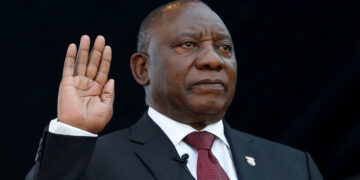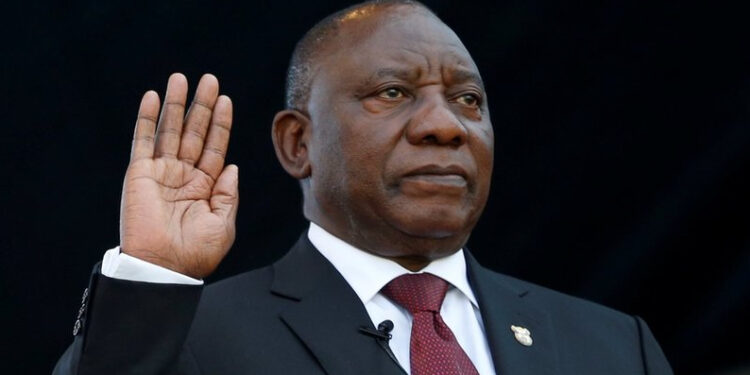By John Ikani
South Africa’s President, Cyril Ramaphosa has announced an end to more Covid-19 lockdown restrictions that have weighed on the nation’s struggling economy for two years.
He also announced plans to bring an end to the national state of disaster which regulates the country’s COVID-19 rules and has been in place since the onset of the pandemic in March 2020.
Its extension last week until April 15 drew criticism from businesses hard hit by its measures.
Business people, scientists and campaign groups were among those to criticise the extension of the national state of disaster. Some argued it was not necessary given infection rates were currently relatively low and past restrictions had not prevented COVID-19’s spread.
The latest ease of Covid-19 restrictions scheduled to take effect from Wednesday will see the reopening of stadiums, theatres and music venues to the public, which is expected to help revive sport, tourism and the arts industries.
Venues will however need to make sure that patrons have either been vaccinated or produce proof of a negative test taken within 72 hours – and keep numbers to 50% of a venue’s capacity.
Ramaphosa said international travellers will still need to produce a negative PCR test or proof of vaccination when they arrive in the country.
Vaccination facilities will also be provided to travellers who wish to be vaccinated on arrival.
Wearing of masks will now only be required in enclosed spaces.
Africa’s most industrialised nation is continent’s worst-affected in terms of confirmed infections and deaths, which stood at over 3.7 million and 99,893 respectively as of Tuesday, authorities said.
The country has been in an ‘adjusted level 1’ lockdown, or the lowest of a five-tier system of restrictions, since October last year, but infections and deaths have dropped.
Explaining reasons behind the latest move, Ramaphosa said local research shows that between 60-80% of the population has some kind of Covid-19 immunity, either from previous infection or through vaccination.
According to him, the country was moving away from a disaster management response to relying on health protocols approach to manage Covid-19.
He added that the government will be introducing new legislation next month which will among other things do away with mandatory self-isolation for people who are asymptomatic.
The proposed legislation will be open for public comments until 15 April and will form part of the country’s long-term plan in dealing with coronavirus over the years.




































